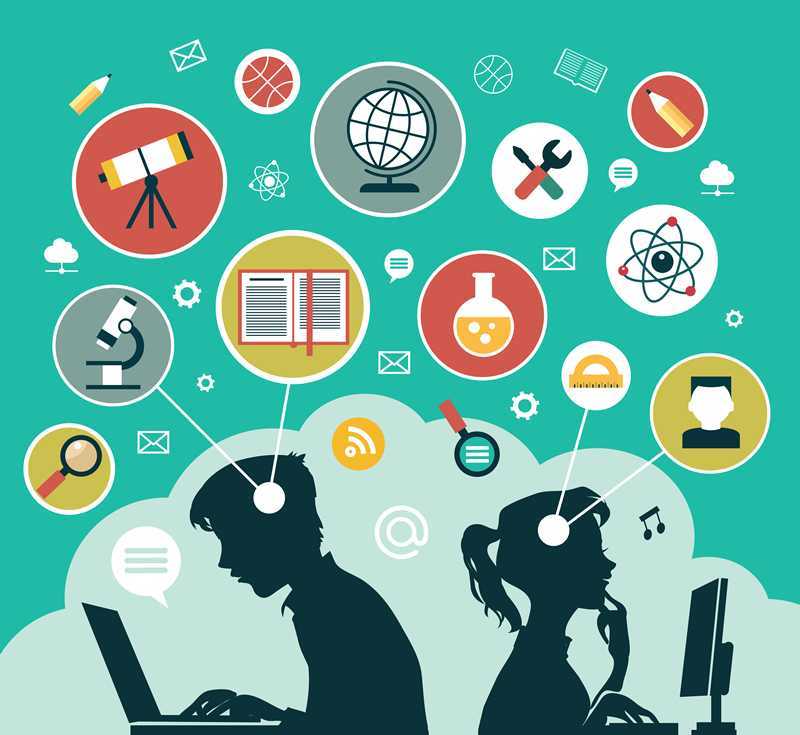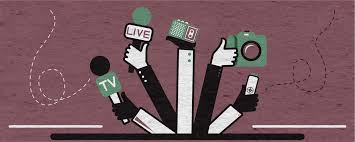What is media literacy and why does it matter?

Media literacy enables the populace to understand and contribute to public discourse, and, eventually, make sound decisions when electing their leaders. People who are media literate can adopt a critical stance when decoding media messages, no matter their views regarding a position.
* Media : Media are the communication outlets or tools used to store and deliver information or data. The term refers to components of the mass media communications industry, such as print media, publishing, the news media, photography, cinema, broadcasting, and advertising. And also we can say shortly, media refers to channels or tools used to store, deliver, and exchange information.
*Literacy: Literacy is the ability to read, write, and understand information. It often includes skills like comprehension, communication, and critical thinking, and is essential for effective participation in society.
*Media Literacy: Media literacy is the ability to the access, analyze, evaluate, create, and communicate information in various forms of media. It involves critical thinking skills to understand the content, purpose, and impact of media messages, helping, individuals to become informed and responsible consumers and producers of media.
Why Media Literacy Is Important?
Media Literacy is essential because it empowers individuals to critically evaluate the the vast amount of information they encounter daily. In a world flooded with news, advertisements, and social media content, being media literate helps people discern fact from misinformation, understand bias, and make informed decisions. It fosters critical thinking, enhances understanding of media's role in society, and equips individuals with the skills to engage responsibly in a digital age.
*FAKE NEWS;
 Fake news or information disorder is false or misleading information (misinformation, including disinformation, propaganda, and hoaxes) presented as news. Fake news often has the aim of damaging the reputation of a person or entity, or making money through advertising revenue.
Fake news or information disorder is false or misleading information (misinformation, including disinformation, propaganda, and hoaxes) presented as news. Fake news often has the aim of damaging the reputation of a person or entity, or making money through advertising revenue.
*MEDIA BIAS;
 Media bias
occurs when journalists and news producers show bias in how they report
and cover news. The term "media bias" implies a pervasive or widespread
bias contravening of the standards of journalism, rather than the
perspective of an individual journalist or article.
Media bias
occurs when journalists and news producers show bias in how they report
and cover news. The term "media bias" implies a pervasive or widespread
bias contravening of the standards of journalism, rather than the
perspective of an individual journalist or article.
Therefore, Media bias refers to the tendency of news organizations and journalists to report events and issues in a way that reflects particular political, ideological, or cultural perspectives. this can manifest through selective coverage, framing, or emphasis on certain aspects of a story while downplaying or ignoring others. Media bias can influence public perception and opinion, shaping, how audiences understand and engage with current events.
* MENTAL HEALTH CONCERNS ;
Unfortunately, a lot of the media that is accessible nowadays endangers young people's mental health. For instance, on social media sites, there is temptation to compare yourself to everyone else in addition to the danger of bullying and harassment. These days, influencers dominate all social media networks, giving you a clear idea of how you ought to behave or appear.
Younger readers in particular could compare themselves to what appears to be an ideal life and fail to grasp the full significance of these articles. It need critical thinking abilities to view such material objectively. Being able to distinguish between valuable content on social media could mean the difference between having a good or bad time sing the platform.

*INTERNET AND MEDIA ACCESS; Access to media and the internet should also be taken into account. Many of us don't consider having a reliable Wi-Fi connection and internet access to be luxuries. Many others, nevertheless, do not enjoy this luxury.
People who don't have easy access to the internet might not be as familiar with online news sources and information. When exposed to the media, they could find it difficult to distinguish between false and accurate in formation.
In summary,media literacy is a critical ability in the current digital world.It gives people the ability to evaluate and critically analyze the large amount of information they come across every day, which helps them separate false information from reliable sources.Informed decision-making, the development of critical thinking abilities, and a more involved and responsible citizenry are all facilitated by media literacy. The significance of media literacy in navigating the complexity of the contemporary information landscape cannot be emphasized, as media continues to alter public perception and influence society.



😍
ReplyDelete❤🌻
ReplyDeleteGreat work❤️😍
ReplyDelete❤️❤️
ReplyDelete❤️😍
ReplyDelete